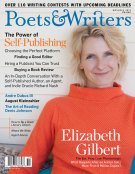In much the same way that, a century ago, modernist magazines Secession and the Little Review upended our previously held opinions about art and culture, today’s avant-garde magazines continue to challenge and incite readers. Possibly the most conspicuous such publication today is Fence (fenceportal.org), its name representing the boundary between two fields of literary production: the unremarkable and the dogmatically experimental. Founded in 1997 by editor in chief Rebecca Wolff and currently operating out of the State University of New York at Albany, Fence satisfies a need for publications “unafraid of weirdness.” Earlier this fall Fence released a special fiction issue, guest-edited by Rivka Galchen and featuring new work by Lydia Davis, David Gordon, and others—work Galchen describes as “Chinese opera, a miscellany, a dreamscape and a dalliance. The category problems these stories present are part of how they solve being new.” The Fall/Winter 2014 issue, whose fiction section was guest-edited by Rick Moody, features stories from David Ryan and Amanda Goldblatt alongside new poetry from Kathleen Ossip and Evie Shockley. Fence considers electronic submissions during reading periods announced on its website.
This year marked the tenth anniversary of Sleepingfish (sleepingfish.net), one of a handful of twenty-first-century magazines concerned with literature as inventory and image, with hybrid-genre text as vehicle and obstacle. Sleepingfish 12 includes spectral maps from Daisy Atterbury, image-texts orchestrated by Nance Van Winckel, and an array of indices by James Wagner. “Probably more visual art than most literary magazines,” founding editor Derek White says of the anniversary issue. “No poetry really, unless it looks like prose.” Sleepingfish considers electronic submissions during designated reading periods; visit the website for details.
Founded by M. Bartley Siegel in 2006, the Houghton, Michigan–based PANK (pankmagazine.com) is coedited by Siegel and Roxane Gay. Known for publishing experimental work by emerging writers, PANK’s vision is innovative and eccentric: “To the end of the road, up country, a far shore, the edge of things, to a place of amalgamation and unplumbed depths, where the known is made and unmade, and where unimagined futures are born, a place inhabited by contradictions, a place of quirk and startling anomaly.” Issue Nine is perhaps the most startling to date, with new writing from Alice Bradley, Paula Mendoza, and Frank Bill. Submissions of poetry, fiction, and nonfiction will open again through Submittable in December, at which time “all [published] contributors, both online and in print, will be paid for their work.”
Just down the road from where San Francisco’s midcentury mimeo revolution produced such groundbreaking periodicals as Yardbird Reader and Kayak, Eleven Eleven (elevenelevenjournal.com), published by the MFA program at California College of the Arts, continues the tradition of risk and experimentation. Founded in 2004 by Youmna Chlala and Gayle Romasanta and currently edited by Hugh Behm-Steinberg, Eleven Eleven alternates between online and print publication with each issue. The latest print release, Issue 15, includes new work from Ira Sukrungruang, T. A. Noonan, and a rediscovered piece from San Francisco Renaissance writer James Keilty. Behm-Steinberg is “especially interested in fabulist and experimentalist prose, works in translation, and archival/recovery projects.” Submissions will be considered for the next print issue between February 1 and March 1 via the online submission manager.
When asked whether he considers Hobart (hobartpulp.com) to be avant-garde, founding editor Aaron Burch points to a recent issue. “One of the stories was pretty much about [the video game] Metroid,” says Burch. “I don’t know if that’s ‘avant-garde’ but it seems awesome to me.” Since launching the publication in 2003, Burch has had his finger on the pulse of fiction, with three recent stories having been included in both Best American Short Stories and the PEN/O. Henry Prize anthology. Hobart 14 includes new fiction from Patrick Somerville and Sharanya Manivannan. Issue 15, themed “Hotel Culture,” will be out in early 2014, at which time the Hobart editors will begin reading electronic submissions for the magazine’s next nonthemed issue.
Travis Kurowski is the editor of Paper Dreams: Writers and Editors on the American Literary Magazine, published in August by Atticus Books. His website is traviskurowski.com.

Please log in to continue.
LOG IN
Don’t yet have an account?
Register for a free account.
For access to premium content, become a P&W member today.







